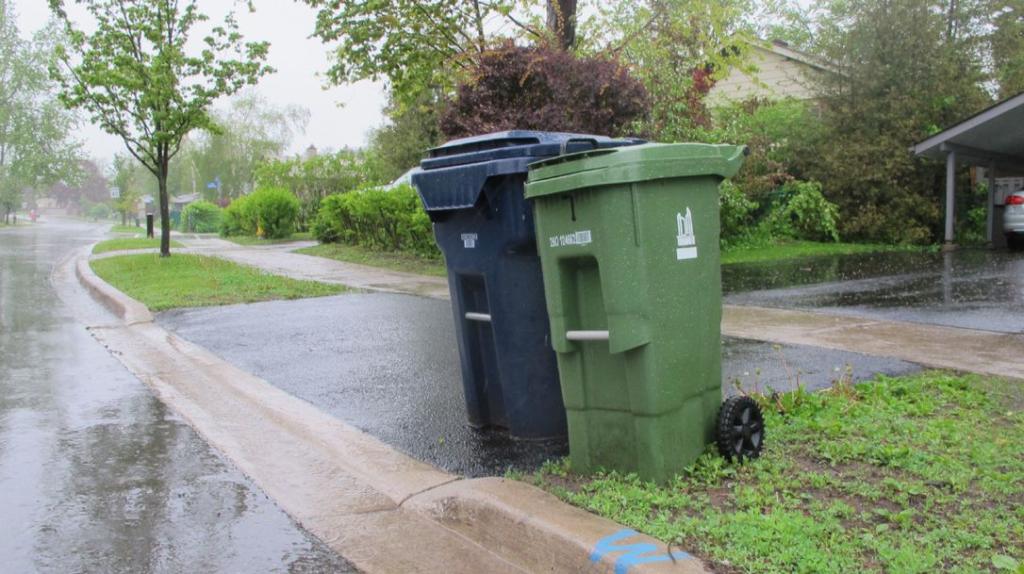Newer green bins are designed to keep raccoons away from domestic waste. The goal is to prevent the raccoons from being drawn into peoples properties or homes and eliminating the mess they create in the process. But less than ideal interactions between raccoons and these green bins have been prompting residents to seek the services of humane raccoon removal teams.
Green bins are more attractive to raccoons than their blue counterparts (which hold recyclable waste) because their contents are edible for the animals. Raccoons are savvy scavengers and once they get a whiff of food somewhere they will work tirelessly to get to it. This is why numerous ‘raccoon resistant’ bins have failed over the years.
New Green Bins Designed to Keep Raccoons Out
Raccoons appear to have outsmarted the designers of the latest new ‘raccoon resistant’ bins. The bins were labelled raccoon resistant by manufacturers and the authorities but there have been reports of breaches. The breaches have been explained as the results of faulty bins or bins that are in need of maintenance.
Cities continue to find ways of raccoon proofing green bins.
How Bins Can Be Hazardous to Raccoons
In a bid to get to the food inside the bins, raccoons often topple them over. Unfortunately, sometimes the bin will fall on the animal and injure or even kill it. The bins are usually designed with weighty material to resist toppling but larger raccoons are sometimes able to topple them and this is made even easier if they are not placed on level ground, to begin with. The heavier the bin, the greater the risk of harm to the raccoon on which it falls.
Another concern of residents is the number of raccoons that are getting trapped in bins. This happens when people leave their bins unlocked (which is necessary for garbage collection day). The animal climbs inside and the heavy lid shuts down above them leaving them with no way out. Residents usually discover trapped raccoons by the scuffling sounds they hear coming from inside the bin, usually in the early morning.
If left inside for the day, the raccoon faces harsh conditions that could be deadly. It is a good idea to check your green bin routinely for trapped raccoons. Bear in mind also that the city’s garbage disposal service does not facilitate animal carcasses, so if a dead raccoon is in your garbage, you will have to find an alternate method of disposal. Ideally, you should call your city’s animal control services to assist you in dealing with all animal carcasses.
Keeping Raccoons Out of Your Garbage Bins
Since we know that raccoons will always devise a way around all mechanisms to keep them out of bins, our best bet is to discourage them or thwart their efforts. You can start by ensuring that the bin is placed at a good distance from al potential aids to access. Raccoons often climb on whatever is nearby (other bins, wall panels etc) to get into a bin. Another great suggestion is to bring unlocked bins out on the day of garbage collection.
What to do About a Trapped Raccoon
If despite all your efforts, you find yourself dealing with a trapped raccoon in your bin you should engage a humane raccoon removal team like Skedaddle to help. Skedaddle specializes in wild animal removal and control and has particular expertise in raccoon behaviour. Our team will safely and cautiously remove raccoons and place them in alternate environments that will support their continued survival. All our methods and policies are guided by animal rights legislation which means you can rest assured that in engaging our services, you are acting within legal limits.



